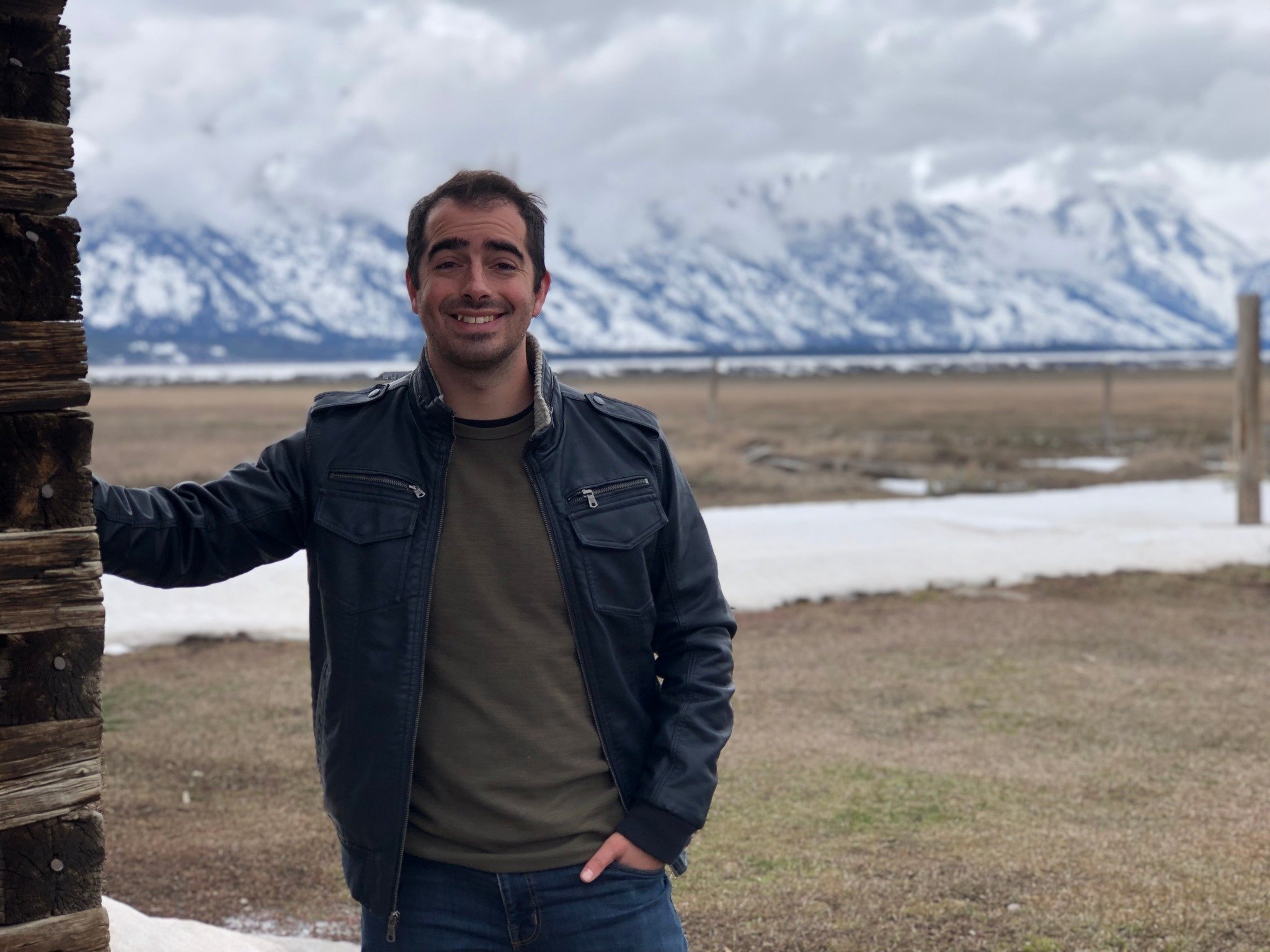Why I Chose My Faith
By Elijah Maddox
I've never liked the feeling of having no control. It doesn’t matter if it’s as significant of an issue as the direction my life is moving in or as minor as the time I arrive at work. Knowing that things are within my sphere of influence helps me feel like I am living life intentionally. For small matters, it’s never that complicated. All it takes is discipline and forethought. If it's important to me never to arrive late for work, then all I have to do is leave the house every day with time to spare. The power rests with me.
But what about the bigger things in life, the ones that are harder to plan, predict, or fully feel control over? What about the fundamental aspects of our life of faith? Do we ever truly get to choose our beliefs? I’ve often wondered about this. Many people, like my parents, or many of my mentors in my faith community, can clearly answer this question with a resounding “yes”. They can often pinpoint the exact moment or experience that sparked their belief in God. In times of struggle or doubt, they have that singular memory of the birth of their faith to look back upon. People like me, however, who are born into a faith community, have a vastly different experience. You can’t easily mark the start of your relationship with God when it’s been a gradual process throughout your life. Moreover, the feeling of a lack of choice or agency tends to creep in at some point or another.
“The most important thing for a believer is a clear goal. ‘Whatever the circumstances I will walk this way’ is such a clear goal. When this goal becomes vague, our life as a believer crumbles, and no matter how firmly we are determined, we will have no connection whatsoever with the purpose. What does it help to determine oneself hundreds of times without a purpose?”
Growing up, I remember countless conversations I had with other young people like me who struggled with the feeling of not having control over their own faith journey. It was often seen as just a tradition inherited from the previous generation. It wasn’t necessarily viewed as inherently wrong or unwanted; rather, it felt like a journey with no clear beginning and perhaps no real end for us. The truth is that many of us who were born into this sort of position weren’t quite sure if we really wanted to be here. I remember this distinctly when I thought of the future. I and many of my friends really didn’t know if we wanted to remain in the church as we grew into adulthood.
During a summer workshop, one late night conversation strayed to this topic of future families. We struggled to envision creating a family life within the culture we had grown up in. Would it be our choice because we wanted it? Or would we choose it only because it was what we knew, what we were used to and comfortable with? Or would we not choose it at all? I remember most of us having mixed answers on this point. In the end, we often felt like we had one foot in the doorway of faith and one foot out.
I was never comfortable being in that lukewarm position about my own belief system. The Bible warns us against this behavior, and in it John admonishes us that, “I know your works: you are neither cold nor hot. Would that you were either cold or hot! So, because you are lukewarm, and neither hot nor cold, I will spit you out of my mouth.” (Revelations 3:15-16) What it means is that we are called to make choices in our lives, to pick a side and make a stand. I had the sense that I needed to find a resolution to this conflict I had, but I struggled to figure out exactly what that resolution would be.
During a conversation with my dad over coffee one morning shortly after I graduated from high school, I confided in him that I envied his life experiences, particularly how he could trace his faith journey back to clear sets of experiences. I realized that I lacked that clarity in my life, and I was afraid that I would never find it. But as I shared my feelings with him, I felt inspired to do something about it. I decided then that if I was going to continue in my journey with God, I needed to make the choice for myself. It didn’t matter that I’d been born into a faith community. It didn’t matter that I’d been praying to God before I even knew what prayer was. It didn’t even matter that I felt like I could never match the powerful, transformative faith experiences of my elders. I had clearly decided that making this choice for myself was something that was important to me, and I figured that there was no time as good as the present to do so.
It wasn’t a flashy or showy moment in any way, but it was my moment. That day in the coffee shop, that conversation with my dad, became a new beginning for me. From then on, I felt a newfound sense of freedom and solidity in my faith journey. I no longer saw myself as someone who had a belief system thrust upon them, as I sometimes had felt in the past. Instead, I saw myself as a seeker, someone who was moving in a meaningful direction of their own free will. I felt happier, more confident and hopeful for the future. All my life, I had wished that I could feel the power to choose my direction. Now I felt that I had claimed that right by making the choice, whether I felt capable of it or not. It was the difference between wanting to find the faith to choose and making the choice to have faith. As seemingly small of a shift as it might seem, it made all the difference to me.
“God is a perfect Being, but He gave all the responsibility to humankind.”
I believe each one of us can and should have such a moment of personal choice about our faith. Really, in every aspect of our lives, we need to be actively choosing which direction to move in. Father Moon spoke very strongly on this subject. “The most important thing for a believer”, he argued, “is a clear goal. ‘Whatever the circumstances I will walk this way’ is such a clear goal. When this goal becomes vague, our life as a believer crumbles, and no matter how firmly we are determined, we will have no connection whatsoever with the purpose. What does it help to determine oneself hundreds of times without a purpose?”
Without something we have chosen for ourselves to strive for, it is easy for our faith to wither. Speaking from experience, it’s much easier to just go with the flow and let the river of life carry us along. That works well for a time, until one day we wake up and realize we’re not sure where we are, but wherever it is, we don’t like it very much. In terms of our relationship with God, Mother Moon puts it very simply. “God is a perfect Being, but He gave all the responsibility to humankind.” We have to be the ones to take ownership and choose Him. Ultimately, it doesn’t matter where we started. It matters where we’re headed.


